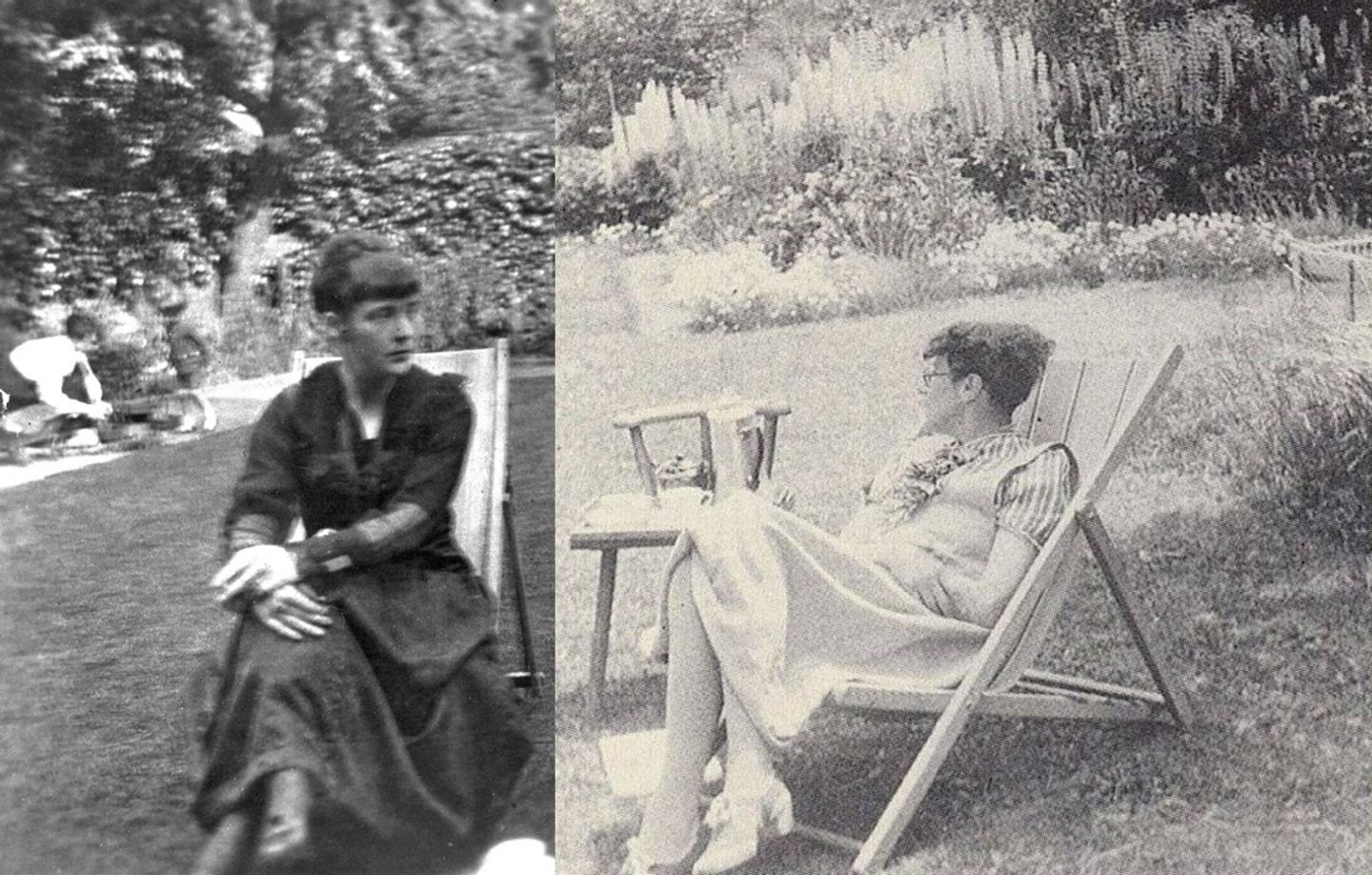SYLVIA TOWNSEND WARNER ON THE LETTERS OF KATHERINE MANSFIELD
- 13 February 2024
- Cherie Jacobson
In Katherine Mansfield’s will, made on the 14th of August 1922, she left all her “manuscripts note books papers letters” to her husband John Middleton Murry, noting “I should like him to publish as little as possible and to tear up and burn as much as possible.” She added, “He will understand that I desire to leave as few traces of my camping ground as possible.” You can view Mansfield’s will in its entirety here and zoom in to read the text.
Murry did not follow these instructions; in fact, he did quite the opposite. In the years following Mansfield’s death from tuberculosis on 9 January 1923, he published two collections of her stories (including some unfinished work), and heavily edited versions of her notebooks which he framed as her ‘journal’. In 1928, he published two volumes of Mansfield’s letters, again heavily edited. One reader of these published letters was Sylvia Townsend Warner, a writer and musicologist whose first novel, Lolly Willowes, published in 1926, was shortlisted for the Prix Femina. Townsend Warner was born in England in December 1893, just six years after Mansfield was born in New Zealand in October 1888. As far as we know, the two women never met, but the image below (created using two separate photographs of Mansfield and Townsend Warner) shows they quite easily could have.
 Image: A composite image that imagines Katherine Mansfield and Sylvia Townsend Warner in conversation with each other. Original image credits: Image 1 - Katherine Mansfield and S.S. Koteliansky, 1916. Harry Ransom Centre, University of Austin, Texas; Image 2 - Sylvia Townsend Warner, date unknown. UCL: London's Global University.
Image: A composite image that imagines Katherine Mansfield and Sylvia Townsend Warner in conversation with each other. Original image credits: Image 1 - Katherine Mansfield and S.S. Koteliansky, 1916. Harry Ransom Centre, University of Austin, Texas; Image 2 - Sylvia Townsend Warner, date unknown. UCL: London's Global University.
Claire Mabey, founder of Verb Wellington, is a big fan of Townsend Warner. In a reading list for the Pantograph Punch she explains that Lolly Willowes “is one of the most exquisite, strange, and comforting books I’ve ever read…Sylvia Townsend Warner’s writing has a profoundly luminous quality. She focuses down into the detail of things and places and people in a way that makes their curious qualities and closeness startling.”
In 1929, Townsend Warner published a piece in The New York Herald Tribune about Mansfield’s letters, entitled ‘Death and The Lady: The Letters of Katherine Mansfield’. Thanks to The Sylvia Townsend Warner Society, you can read the piece in full here.
The piece begins by considering what makes a great letter writer, one whose letters stand the test of time. Townsend Warner observes that being a great writer of literature doesn’t automatically make for a great writer of letters. She opens the piece with the declaration that “Lonely, unhappy people write the best letters.” For her, Mansfield’s illness and the threat of imminent death was central to what makes her letters so compelling, “Katherine Mansfield, sitting in her shadow of death, set herself to shine in that shadow’s despite.”
Townsend Warner observes that “These letters are filled with colours, shapes, lights, noises, people passing the window, fragments of conversation, happenings of all sorts. She breaks off in the middle of one to remark that a fly has just flown into the fire. She tells but little of her thoughts, impulses of the mind: such reticence, coupled with the vivacity with which she relates every thing that is of the moment, gives to her letters the fascination of a play of light over some reflecting surface. The pool shows everything, every touch of the wind, every chance spangle of the sun, but without what lies beneath the surface; it shows us every colour but its own.”
Of course, Townsend Warner was reading Murry’s heavily edited versions of Mansfield’s letters, so she wasn’t getting the full picture, but she writes insightfully about the impulse behind Mansfield’s letter writing and carefully selects excellent quotes to illustrate her points. She reflects, ‘When Katherine Mansfield died of consumption in 1922 it was a natural impulse to think of what English literature had lost by her fate. These letters turn the mind toward a contrary speculation: it may be that her fate had enriched us.”
The piece is not long and absolutely worth reading. Enjoy!
